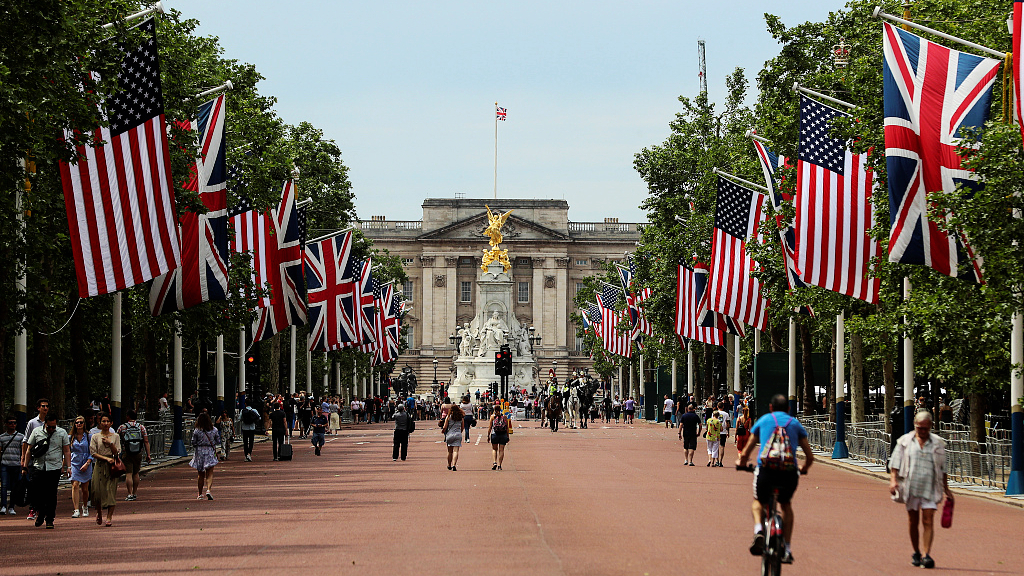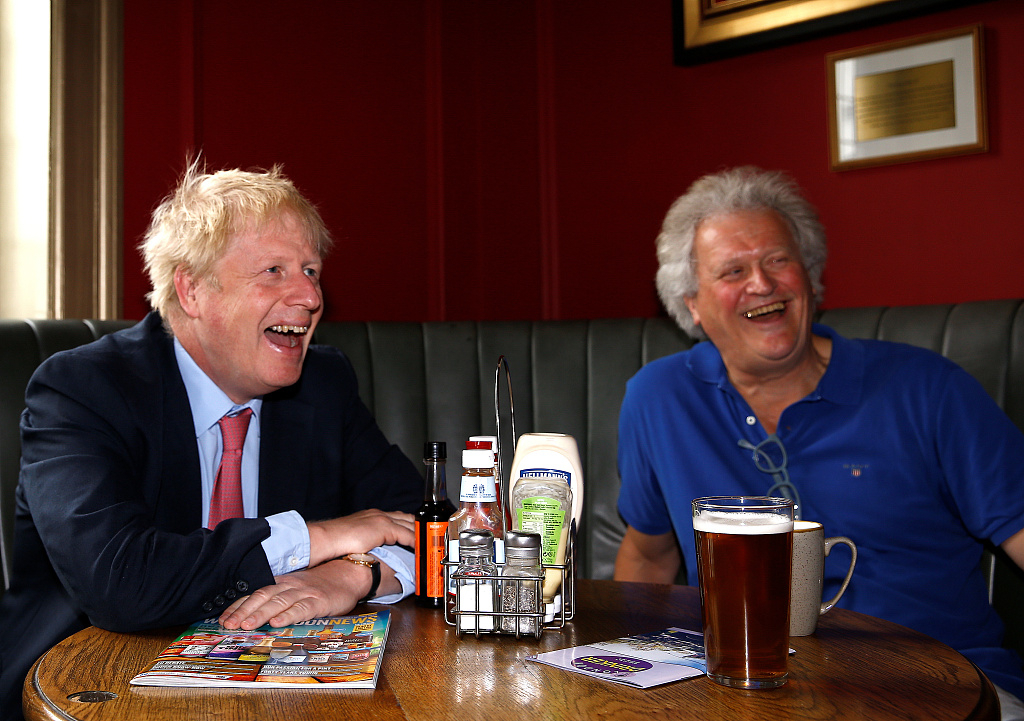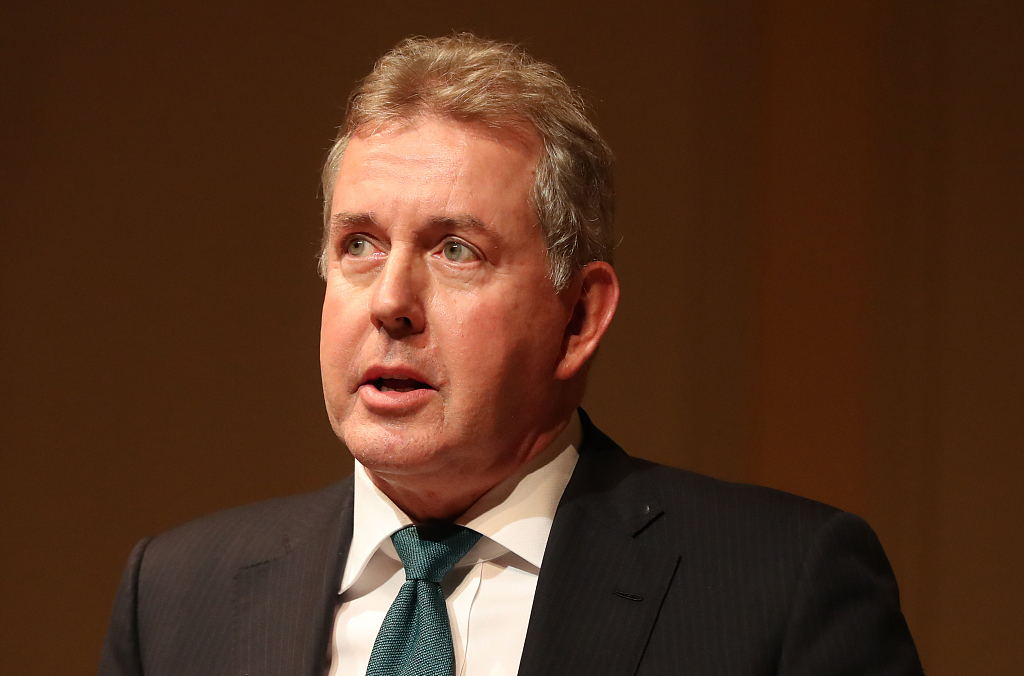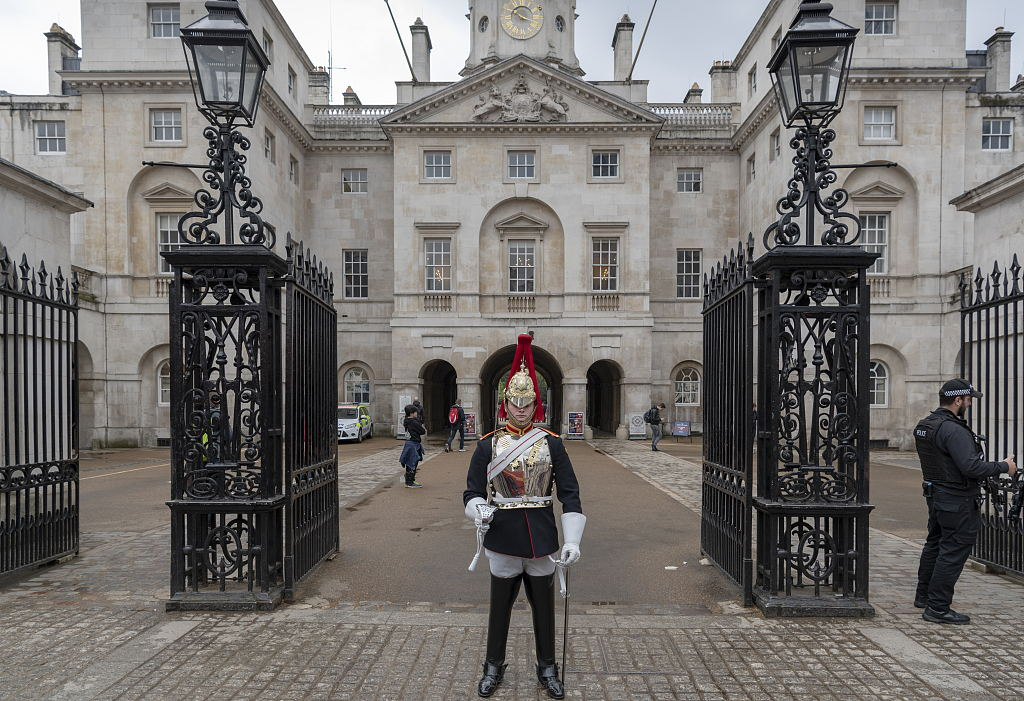

Editor's note: Chris Deacon is a postgraduate researcher in politics and international relations at the University of London and previously worked as an international commercial lawyer. The article reflects the author's opinions, and not necessarily the views of CGTN.
Following the scandal regarding leaked diplomatic cables critical of the Trump administration, the United Kingdom's ambassador to the United States, Sir Kim Darroch, resigned on Wednesday afternoon.
Sir Kim's resignation came after the likely next UK Prime Minister, Boris Johnson, failed to support the veteran diplomat in a televised debate with Conservative leadership rival Jeremy Hunt on Tuesday evening.
After Donald Trump continued to escalate the situation on Tuesday, by referring to Sir Kim on Twitter as "a very stupid guy" and stating that his administration would no longer work with the UK ambassador, Sir Kim resigned saying that "the current situation is making it impossible for me to carry out my role as I would like."
Although his retirement was due as soon as the end of this year, he felt that "in the current circumstances, the responsible course is to allow the appointment of a new ambassador."

Boris Johnson, a leadership candidate for Britain's Conservative Party, meets with JD Wetherspoon chairman Tim Martin as he visits Wetherspoon's Metropolitan Bar in London, England, July 10, 2019. /VCG Photo
But, according to certain insiders, what really made up Sir Kim's mind was the failure of Boris Johnson to support him on Tuesday evening. During a televised debate between Johnson and Jeremy Hunt as part of the contest to become the next leader of the governing Conservative Party – and, therefore, Prime Minister – the two men were asked whether, if they were to win, they would keep Sir Kim in post.
Jeremy Hunt was unequivocal, as he already had been earlier in the day, that the UK's overseas diplomats should be decided only by the UK government, with no interference from external forces, be they an important ally or otherwise. He confirmed that he would keep Sir Kim as U.S. ambassador until his retirement, regardless of Donald Trump's opinions.
Johnson, however, would not answer the question directly, despite being asked six times. He agreed that only the UK Prime Minister should make such decisions, but refused to confirm that he would not sack Sir Kim if he were to win the leadership contest. This was a clear indication to all watching – including Sir Kim himself – that Johnson was not prepared to back the ambassador.
This was particularly pathetic of Johnson given that he had confirmed his belief that Sir Kim had done nothing wrong; he was simply doing his job as ambassador by relaying his confidential thoughts and impressions of the Trump administration for the benefit of the UK government's policy formulation.
Johnson also confirmed his belief that the leaking of these communications was outrageous. Given this, it is craven to then not follow through with the logical conclusion of these views and support Sir Kim.
Many politicians also reacted with disgust, including Foreign Office minister and Conservative MP Sir Alan Duncan, who stated that Johnson had "thrown [Sir Kim] under a bus" by refusing to support him.

UK Ambassador to the United States Kim Darroch, March 18, 2013. /VCG Photo
Another Tory MP, and chairman of the House of Commons foreign affairs committee, Tom Tugendhat, also criticized Johnson, stating on Twitter that "leaders stand up for their men."
Others have been more understanding of Johnson's behavior, claiming that the UK's relationship with the U.S. is of such importance that there was little choice but to go along with Trump's wishes.
This perspective, however, ignores the immensely damaging precedent that has been set. For a foreign leader to interfere directly in the UK's domestic decision-making this way is outrageous, and for the UK to accede to such interference is even worse. The status quo is now that the U.S. President has the power to effectively veto who the UK chooses as its ambassador.

Whitehall Street, London, England, April 27, 2018. /VCG Photo
These events could also cause immense damage to the conduct of the UK's diplomacy. What are the UK's diplomats to do from now on? Should they gild every communication regarding the administrations of important allies for fear that their words might be leaked, and they will be forced out of their jobs? That would do immense damage to the UK’s ability to understand the workings of foreign governments and how to deal with them.
Perhaps worse still are the rumors that the motivation of the leaker was Brexit-related. It is understood that Sir Kim was seen as a pro-Remain figure and, therefore, Brexit-supporting figures may have wanted him out of the job. It was confirmed today that police are involved in investigating the identity of those responsible, at which point the veracity of these rumors may be confirmed.
In all, this is a deeply sorry episode for the UK's politics, its civil service and its diplomacy. Boris Johnson has shown himself to be a coward who cannot follow through with what he almost certainly believes to be right. It is now becoming increasingly farcical that this man will shortly become the prime minister of the United Kingdom at a time when it desperately needs a true leader.
(If you want to contribute and have specific expertise, please contact us at opinions@cgtn.com.)

Copyright © 2018 CGTN. Beijing ICP prepared NO.16065310-3
Copyright © 2018 CGTN. Beijing ICP prepared NO.16065310-3